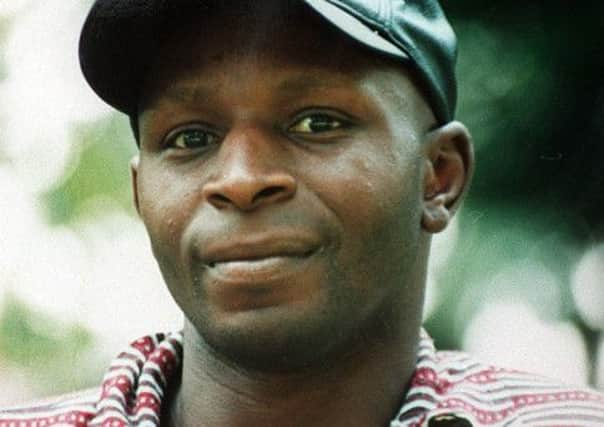Exclusive: Hull morgue rocked by fresh fears over children’s post-mortems


The revelations concerning the morgue at Hull Royal Infirmary – where the body of Christopher Alder was found 11 years after he was supposed to have been buried – were discovered during an official inspection in 2009.
That was three years after the implementation of strict new laws governing the storage and use of human tissue, which were introduced following the organ retention scandal at Alder Hey children’s hospital in Liverpool.
Advertisement
Hide AdAdvertisement
Hide AdThe report has never been published but reveals that inspectors from the Human Tissue Authority (HTA) who assessed the mortuary against 17 standards, found 11 were fully met, two were almost met, and four were partially met.
They said the HTA was “satisfied that the establishment is meeting the relevant required standards”, but made a number of recommendations regarding consent and proposed the addition of three conditions to its licence.
Offences under the Human Tissue Act 2004 include “removing, storing or using human tissue for Scheduled Purposes without appropriate consent”, with penalties ranging from a fine to three years imprisonment or both.
Asked by the Yorkshire Post to explain why the inspection concluded no offences were committed despite the concerns raised, the HTA said it found no evidence of any offence and that the issues relating to consent only “had the potential to not meet regulatory requirements”.
Advertisement
Hide AdAdvertisement
Hide AdHowever, a legal expert in the field who has seen the report said he believes relatives of the dead would be able to bring a civil claim against hospital authorities, and that some children’s post-mortems may have been done “without valid legal consent”.
Nick Gray, clinical negligence specialist at Williamsons Solicitors in Hull, said: “The possible failure to obtain valid informed consent for a post-mortem at the Hull Royal Infirmary or subsequent tissue retention prior to 1 May 2010, especially now there is evidence that a regulatory requirement imposed by the Human Tissue Authority was not fully adhered to, would allow the deceased’s family to bring a legal claim because unauthorised action may have been taken.
“There is also further evidence now available that suggests some post-mortems on behalf of children may have been carried out without valid legal consent.”
Inspectors found that consent forms used for post-mortem examinations stated “that (tissue) blocks and slides do not require consent to be retained as part of the medical record”, which was “contrary to the requirements of the HT Act” and meant that “blocks and slides are potentially being retained and used without valid consent”.
Advertisement
Hide AdAdvertisement
Hide AdConsent for paediatric post-mortems was obtained by midwives on the maternity ward, and the mortuary’s own staff estimated “at least 25 per cent of the time”, the midwives “improperly” completed the consent forms.
During one consent meeting observed by the mortuary manager, the midwife was “unable to adequately discuss the PM examination procedure with the family”, which “suggests that consent for paediatric PM examinations is not being taken in line with the HT Act”.
Consent forms for both adult and paediatric post-mortems were similarly not in line with the requirements of the Act, the inspection report said.
The mortuary carries out about 1,200 post-mortem examinations each year, although those done on behalf of the coroner do not require consent.
Advertisement
Hide AdAdvertisement
Hide AdIt is not known how many paediatric examinations were conducted in the three-year period, but there were 49 in 2009 and 22 last year.
The Designated Individual (DI), who is responsible for ensuring the requirements of the Act are met, was found to be “suitable” in the report’s conclusion, but was criticised when the inspectors explained their reason for issuing notice of a proposal to vary the licence.
They said the DI “has failed to discharge the duty” under the Act by failing “to secure that suitable practices are used”. The DI, a consultant histopathologist employed by Hull and East Yorkshire Hospitals NHS Trust, which runs the mortuary, was advised to implement a series of improvements by May 1, 2010.
Shortly after the discovery of Mr Alder’s body, trust chief executive Phil Morley said: “The HTA last inspected the Mortuary in 2009 and found us to be fully compliant with all regulations and legislation.” He invited the HTA back to carry out a second inspection, which found the morgue met all the standards, although further advice and guidance were given.
Advertisement
Hide AdAdvertisement
Hide AdCommenting on the 2009 report, a trust spokesman said: “When the HTA inspected the mortuary in September 2009, they raised three conditions and cited four issues for advice and guidance. We subsequently provided evidence to the HTA to demonstrate that the mortuary was meeting these conditions.”
He added: “The HTA visits laboratories and mortuaries in order to ensure a high-quality service, and to identify areas for improvement. We very quickly demonstrated that we fulfilled the conditions they set for us in order to be fully compliant with a HTA licence, and we have retained this status.”
The mortuary is at the centre of a recently concluded criminal investigation following the discovery of Mr Alder’s body in November 2011. The investigation found his family were given the body of an elderly Nigerian woman, Grace Kamara, 77, to bury at his funeral. A file has been passed to the Crown Prosecution Service. Mr Alder died in police custody in Hull in 1998.